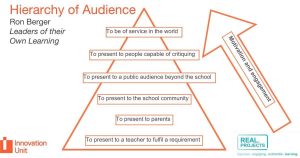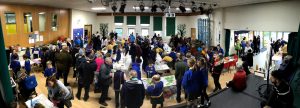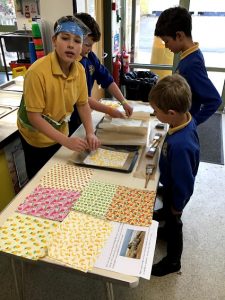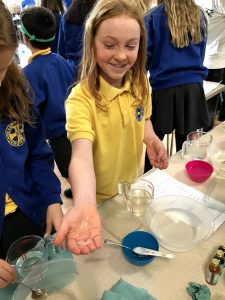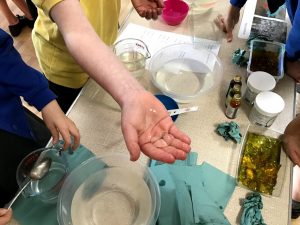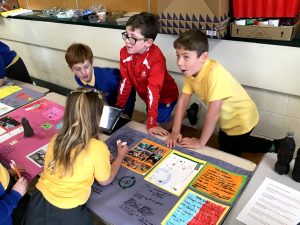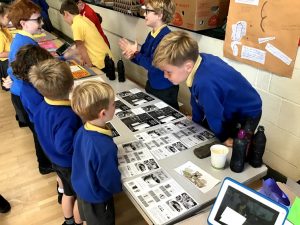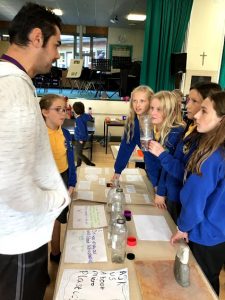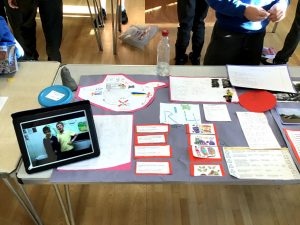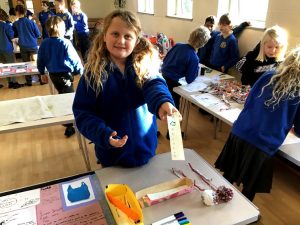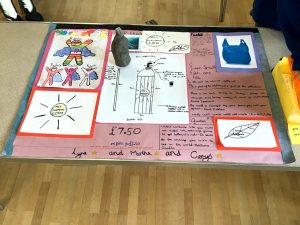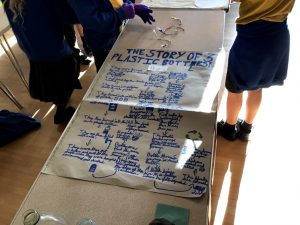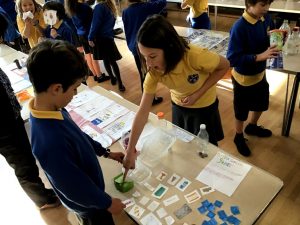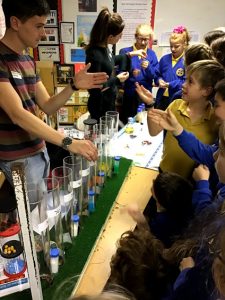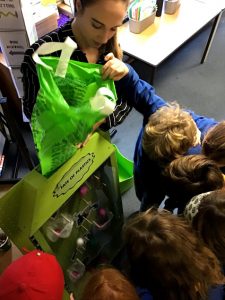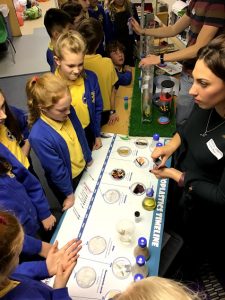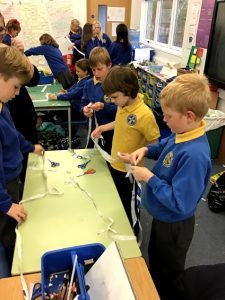Curriculum Exemplar
Science
Microplastics- deep learning Yr 5/6 Autumn 2019
We aim to narrow the focus of a topic and go deep. This way we hope our pupils will become not just enthused but inspired or concerned or morally engaged in the knowledge they are encountering. Where possible these deep encounters will also touch upon our curriculum threads. ‘Microplastics’ was one example of a topic that got the children ‘concerned.’
Engagement in their learning is not enough- we need to provide real purpose to the learning. Dorothy Heathcote said we must be careful not to mistake compliance for engagement or entertainment for engagement. She maintained there was a place of learning beyond engagement, away from a dependency on the teacher and towards a more independent form of learning. She used words like ‘concern’ and ‘investment’ and ‘obsession’ to describe the kind of learning we should be aiming for and described the ‘bridge of concern’ as the key way to take them from engagement to investment. We want our pupils to feel ‘bothered’ by what they are learning. We recognise the ‘purpose of learning takes on a new dimension when we ask ourselves where could this go, who else needs to know about this, are there links we could make with this knowledge with the wider community and who might be an external audience for what we have done?’ (Myatt, 2018)
Last Autumn Year 5/6 had a science topic on ‘Materials’ to cover. We chose to cover this topic with a specific focus on ‘Microplastics. We invited Phd students from Bath Spa University to explain plastic and in particular microplastics. The pupils were shocked to find out that, ‘micro- plastics are tiny pieces of plastic but they make a big difference with plastic pollution. They can be found in tooth-paste, teabags and some soap. There are more micro plastics in the ocean than there are stars in the galaxy. Plastic in the old days used to be made out of starch- as opposed to man-made products using oil.
‘We researched a lot about pollution and how plastic affects our environment. Some PHD students from Bath Spa College came in to talk to us. They taught us so many things like how hardly anything is bio-degraded and most litter is incinerated or put into landfill. They played some really fun games with us but we also learned a lot.
We did a project in class all about these tiny plastics. A local company gave us a challenge by video link to design a biodegradable sun cream bottle (most sun cream also contains microplastics). It was a competition and the winners from each class got to go and present their product to a local company. In the end, unfortunately, they couldn’t go because of Covid-19.
We created a big display of all our work in the school hall and some of the parents and local community and all the other children came to see. There were lots of stalls full of facts and information about plastic and micro plastic. In one corner there was a shop selling pom-poms, dice we made out of vinegar and milk, home-made skipping ropes and beeswax wraps.We also learnt how to make edible water bottles.
We made the skipping ropes from old plastic bags. We cut them into strips then plaited them. We made the dice from milk that we separated into curd and whey then we added vinegar and sculpted it into cubes. It smelt but it felt like plastic and it was biodegradable.
We learnt so much that week it was eye-opening to the pollution situation everywhere. It was fun and very educational and we all enjoyed it so, so much.’
“I like doing science because at the moment we are doing light in science and last term we did a science week when we learnt about the seven types of plastic and 4 scientists came in who were doing their PhDs and it was really interesting learning about micro-plastics.” Year 5 pupil
In doing this we were also recognising the importance of oracy in the children’s learning. Oracy underpins wellbeing; is critical for articulating feelings and building relationships. It is important for empathy, for self- expression, for creative thinking. It is so much more than academic; it hands us the means to engage with the world. As James Britton said, ‘’Reading and writing float on a sea of talk.’’
We were also recognising the importance of the audience for the children’s learning. Ron Berger talks about the hierarchy of audience.
